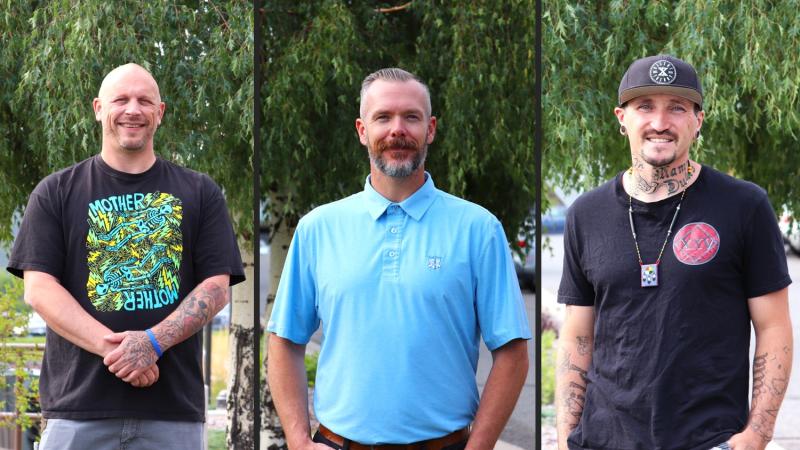Cecily Townsend is the Volunteer Program Supervisor for St. Peter's Health
July 22, 2024
Volunteers make an immeasurable difference in people's lives by giving back to their community, supporting important causes and helping those in need. Did you know that volunteering can benefit your health as well? Research has shown that volunteering provides significant health benefits, especially for older adults, by enhancing their mental and physical well-being. Researchers believe that the combination of physical activity, social interaction, and mental stimulation that comes with volunteering contributes to a longer, healthier life.
Mental Health Benefits
- Reduces stress and anxiety: Volunteering provides a sense of purpose and fulfillment, which can alleviate stress and anxiety. It also increases positive and relaxed feelings by releasing dopamine. Studies have shown that individuals who volunteer regularly report lower levels of stress and a sense of purpose.
- Improves self-esteem and confidence: Volunteering allows individuals to develop new skills, meet new people, and achieve personal goals. When volunteers see the positive impact of their work, it reinforces a sense of accomplishment and self-worth.
Physical Health Benefits
- Increased physical activity: Many volunteer activities involve physical tasks and increasing physical activity levels, which can improve cardiovascular health, enhance muscle strength, and contribute to overall physical fitness.
- Lowers blood pressure: A study by Carnegie Mellon University found that adults over 50 who volunteered at least 100 hours a year were less likely to develop high blood pressure. Researchers attributed this to the stress-reducing effects of volunteering and the increased physical activity in many volunteer tasks.
Social Benefits
- Enhances social connections: Volunteering is an excellent way to meet new people and strengthen existing relationships. It provides opportunities to connect with others from diverse backgrounds who share similar interests and values, fostering a sense of community and belonging. These social connections are particularly beneficial for individuals who feel isolated or lonely.
- Builds a support network: Individuals can build supportive relationships that provide emotional and practical support during challenging times. This network can be a valuable resource for advice, encouragement and companionship.
Cognitive Benefits
- Stimulates the Mind: Volunteering often involves learning new skills, solving problems, and engaging in activities that require cognitive effort. These experiences can stimulate the brain and promote mental sharpness. Activities such as tutoring, mentoring, or participating in community planning keep the mind active and engaged.
- Reduces risk of cognitive decline: Some research suggests that volunteering can reduce the risk of cognitive decline in older adults. Engaging in mentally stimulating activities and maintaining social connections are fundamental to preserving cognitive function.
As you can see, volunteering offers a wide range of health benefits, making it a valuable activity for individuals of any age. The positive effects of volunteering are well documented, from reducing stress and anxiety to boosting physical fitness and promoting longevity. One key to tying health benefits to volunteering is doing it for the right reasons. A 2012 study found that participants who volunteered regularly lived longer, but only if their intentions were truly altruistic. In other words, they volunteered to help others, not make themselves feel better.
Volunteers make a difference in their communities by giving time and effort to help others and enrich their lives in meaningful ways. So, whether it’s an hour a week or a more substantial commitment, volunteering is a powerful way to improve both personal health and the health of our community as a whole.


